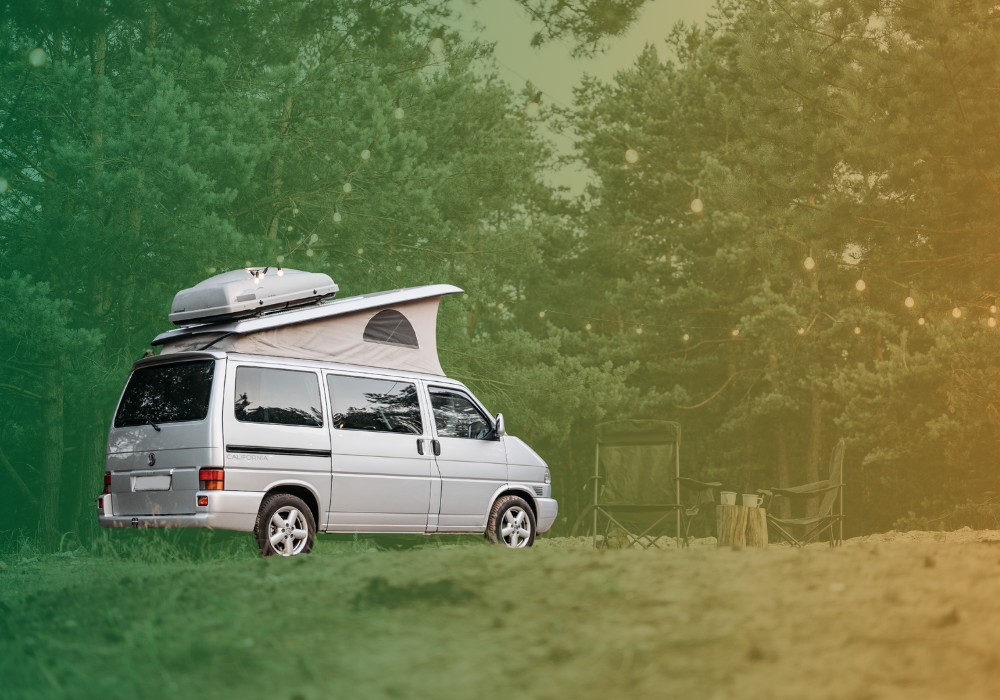1. Start with Good Insulation
The best defence against the cold is a good offense, aka proper insulation.
Many modern campervans and motorhomes come with some level of insulation built in, but if you’re converting or upgrading, it’s worth investing in quality materials.
- Insulate the walls, floor, and roof with materials like sheep wool, Thinsulate, or closed-cell foam.
- Thermal window covers (or homemade silver reflectors) help trap heat and stop condensation.
- Draft stoppers or rubber seals around doors prevent cold air from sneaking in.
Remember: Even small improvements can make a huge difference to your van’s warmth and reduce the amount of energy you’ll use heating it.
2. Choose the Right Heating System
A reliable heating setup is essential for comfortable winter van life. There are a few good options depending on your budget and van setup:
- Diesel heaters - Popular in VW campervans and conversions. They run off your vehicle’s fuel and are efficient, safe, and ideal for off-grid adventures.
- Gas heaters - Great for motorhomes with built-in systems; just remember to ventilate properly.
- Electric heaters - Perfect if you’re plugged into a campsite’s electric hook-up (EHU).
- Portable heaters - Small ceramic or fan heaters can take the edge off when parked up, but always use them safely and never leave them unattended.
Always carry a carbon monoxide detector in your van, it’s a small device that could save your life.
3. Layer Up (and Bring Warm Bedding)
Even the best-insulated van can feel chilly at night, so having the right bedding is key.
- Use thermal or flannel sheets instead of regular cotton.
- Bring a thick duvet or sleeping bag rated for low temperatures.
- Add blankets or throws for extra layers.
- Invest in a hot water bottle or electric blanket (12V versions are perfect for campervans).
During the day, layer your clothing, start with thermal base layers, then add jumpers and outerwear. Wool or fleece is especially good for warmth without bulk.
4. Manage Moisture and Condensation
One of the biggest challenges of winter campervan travel is condensation. Warm air inside meets cold metal surfaces and turns into water droplets, leading to damp bedding, fogged windows, and potential mould.
Here’s how to manage it:
- Ventilate regularly – Crack open a roof vent or window slightly, even when it’s cold.
- Use moisture traps or dehumidifier crystals to absorb excess damp.
- Wipe down windows each morning with a microfibre cloth.
- Avoid drying wet clothes inside the van if possible, or hang them near a vented area.
A dry van is a warm van, so this step is worth the extra effort.
5. Cook, Eat, and Stay Active
Cooking inside your van is one of the best ways to add warmth and cheer. A bubbling pot of stew or a fresh cup of tea can quickly warm the air (and your spirits).
- Cook simple, hearty meals - soups, pasta, or one-pot dishes that use minimal washing up.
- Keep snacks handy for energy on chilly days.
- Move around often - even light activity helps keep you warm.
Just make sure to ventilate while cooking to avoid moisture build-up and always use your cooker safely.
6. Prepare Your Van for Winter Conditions
Before setting off on your campervan winter adventure, give your van a quick seasonal check:
- Check antifreeze and battery health - cold weather can drain power fast
- Insulate your water tanks and pipes if your van has plumbing; frozen pipes can cause damage.
- Pack a shovel, scraper, and de-icer for frosty mornings.
- Use winter tyres or check tread depth for grip on icy roads.
- Carry spare blankets and emergency supplies in case you get stuck or delayed.
7. Choose the Right Winter Campsites
Not all campsites stay open year-round, so plan ahead. Look for campervan destinations that offer:
- Electric hook-ups (great for heating and charging)
- Hardstanding pitches (less muddy than grass)
- Heated washrooms (and drying rooms)
Some of the best winter campervan destinations in the UK include the Lake District, the Scottish Highlands, the Yorkshire Dales, and Cornwall’s quieter coastal sites. You’ll often find better rates and fewer crowds in winter; a big bonus for off-season travellers.
Final Thoughts
Winter doesn’t have to mean parking up your van until spring.
With a bit of preparation, the colder months can offer some of the most peaceful and beautiful campervan travel experiences. Picture waking up to snow-dusted hills, sipping hot chocolate under fairy lights, and enjoying the gentle hum of your heater as you settle in for the night.
So pack your thermals, check your heating, and embrace the cosy side of van life; your next winter adventure awaits.
Find Us










 Spidersnet
Spidersnet